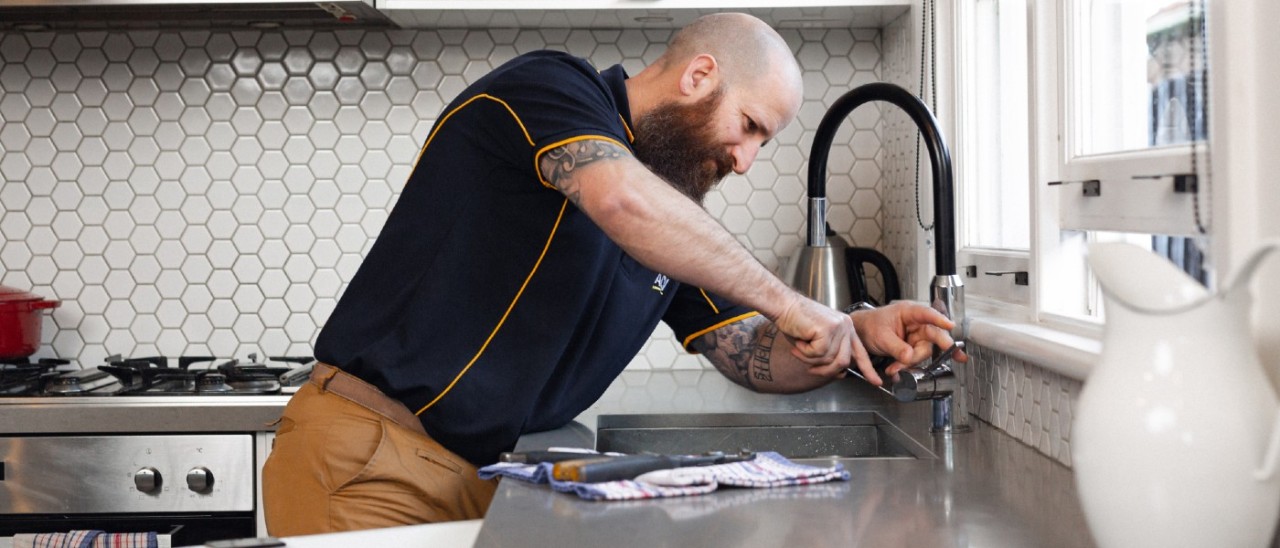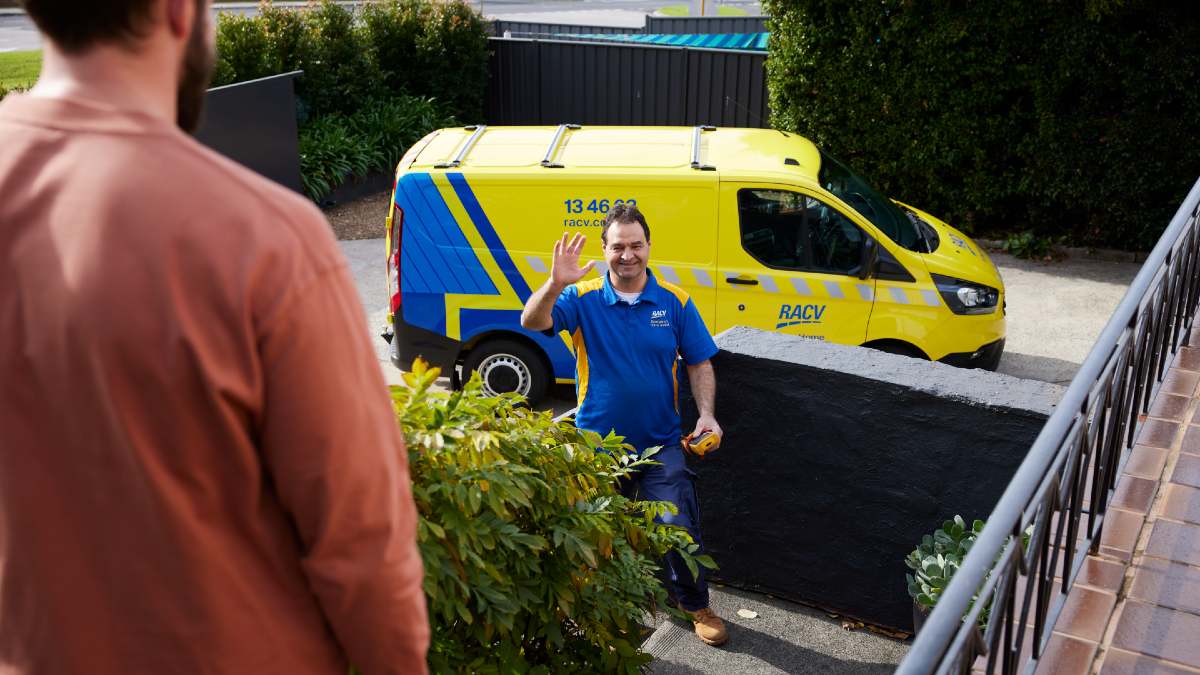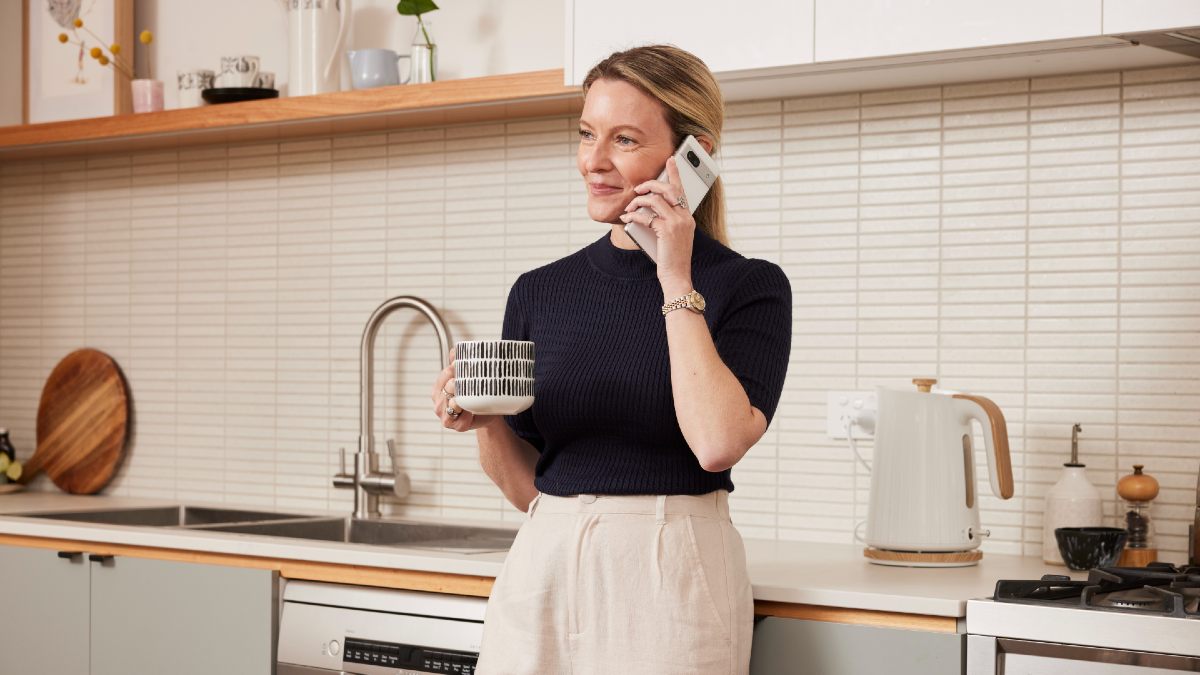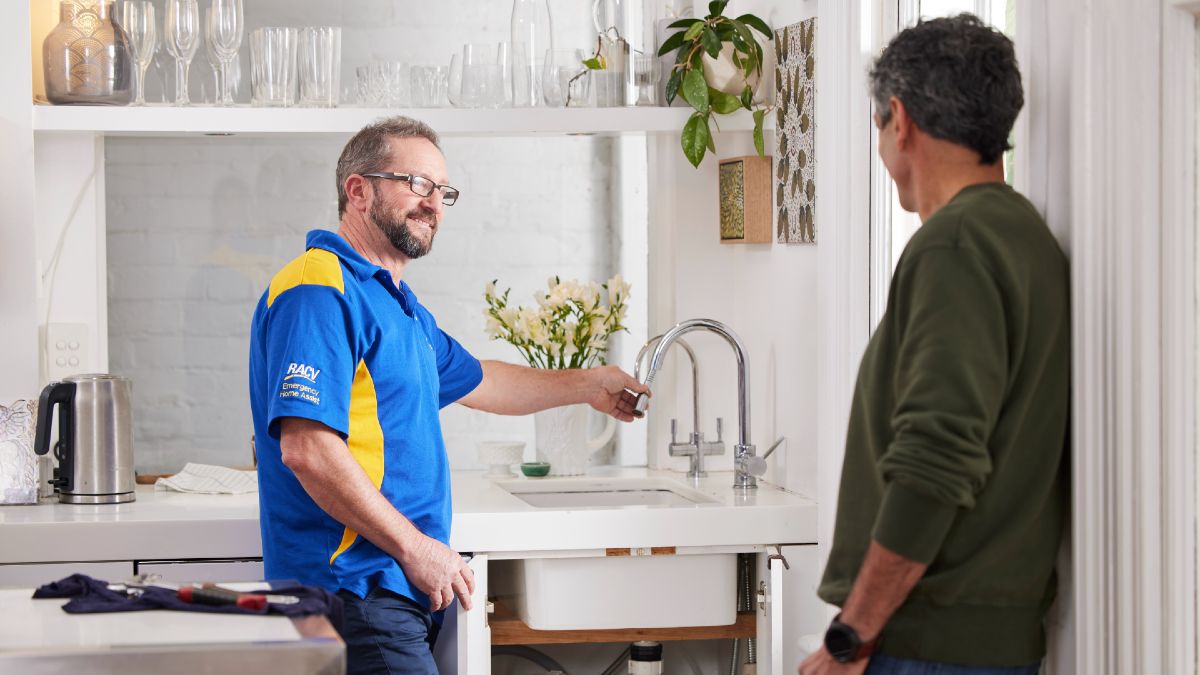It’s great to be handy around the home and DIY – but sometimes, it’s safer to leave it to a qualified tradesperson. These are the jobs around the home that you should not tackle.
What to do when a pipe bursts or you have a water leak

A burst pipe or hidden water leak can cause significant damage in just minutes.
From soaked carpets and warped flooring to mould, electrical hazards and expensive repair bills, water emergencies are some of the most stressful issues a homeowner can face. Acting quickly and safely is essential.
RACV Emergency Home Assist (EHA) responded to 16,808 callouts that related to burst pipes and 5,407 instances of water leaks in the 2025 financial year.
Here's what to do when you notice a burst pipe or leak, plus how to mitigate the damage, and the steps you can take to prevent future problems.
More: The most common home emergencies tradies get called to
Be prepared for any emergency in the home
It's important to be prepared for serious situations in the home that demand immediate attention.
The team at RACV Trades recommends:
- knowing where your water mains are and how to turn them off
- knowing where your switchboard is and how to isolate power if required
- having an RACV Emergency Home Assist plan for unlimited emergency callouts* (see terms and conditions)
- keeping your RACV Home Insurance updated, which could help cover damage from water leaks (for more information on the types of events covered, read the Product Disclosure Statement).
Even if you don't have an RACV Emergency Home Assist plan, you can call 13 46 63 to connect with a fully accredited and trained plumber, who will usually arrive on your doorstep within the hour. RACV's plumbers are available 24/7 with no out-of-hours surcharge.
Your emergency RACV plumber can help you identify the extent of the damage and recommend the best plan of action for your home. They will then either fix the problem on the spot or make temporary repairs to make sure your home is safe and secure, reducing the risk of further damage.

Always have the contact details handy for RACV Emergency Home Assist.
What causes water leaks in the home?
Burst pipes can occur for several reasons, including ageing pipes that corrode over time, high water pressure that stresses joints and fittings, and worn-out flexi hoses.
Shifting soil around underground pipes, tree root intrusion, or cold snaps that cause water to expand and crack pipes can also cause water leaks and bursts.
The most common cause of a leaking tap is a worn-out or damaged rubber washer. Leaks may also be caused by loose connections on appliances.
How to recognise water leaks early
Not all leaks are obvious. While a burst pipe usually results in sudden flooding, smaller or concealed leaks may show themselves through more subtle clues, such as:
- damp or discoloured patches on walls, ceilings or flooring
- musty smells, especially in bathrooms or laundries
- swollen cabinetry or peeling paint
- higher than usual water bills
- a drop in water pressure
- the sound of trickling water when taps are off.
Identifying a leak early can help you prevent more serious damage, so it's worth paying attention to these warning signs, particularly in older homes or properties with ageing plumbing.
7 steps to take in an emergency with a burst or leaking water pipe

Some things you can do yourself, but home emergencies are not DIY - call a professional.

A licensed emergency plumber will be best placed to handle a burst or leaking pipe at your home.
How to prevent future leaks and burst pipes
Once everything has dried out and the repairs are complete, it's worth taking steps to reduce the risk of another water emergency. Preventive maintenance is far cheaper (and less stressful) than dealing with a burst pipe.
Consider:
- replacing flexi hoses every five to ten years
- checking your hot water system for signs of corrosion or leaks
- having plumbing inspected if you live in an older home
- installing smart water monitoring devices that can alert you to leaks early.
The information provided is general advice only. Before making any decisions please consider your own circumstances and the Product Disclosure Statement and Target Market Determinations. For copies, visit racv.com.au. As distributor, RACV Insurance Services Pty Ltd AFS Licence No. 230039 receives commission for each policy sold or renewed. Product(s) issued by Insurance Manufacturers of Australia Pty Ltd ABN 93 004 208 084 AFS Licence No. 227678.
RACV Emergency Home Assist is an emergency home service product, separate to insurance, that is provided by Royal Automobile Club of Victoria (RACV) Ltd and not RACV Insurance Services Pty Ltd. It is a fast response service for common plumbing, electrical and locksmith emergencies, all for one annual fee. Up to 1 hour of labour, including minor parts and materials, is used to repair or make your home safe. Emergency Home Assist does not insure you against the costs of a home emergency and is not a home insurance product. Call outs are unlimited, subject to the fair use policy. Refer to the RACV Emergency Home Assist Terms and Conditions for more details.
* Fair Use Policy applies.


